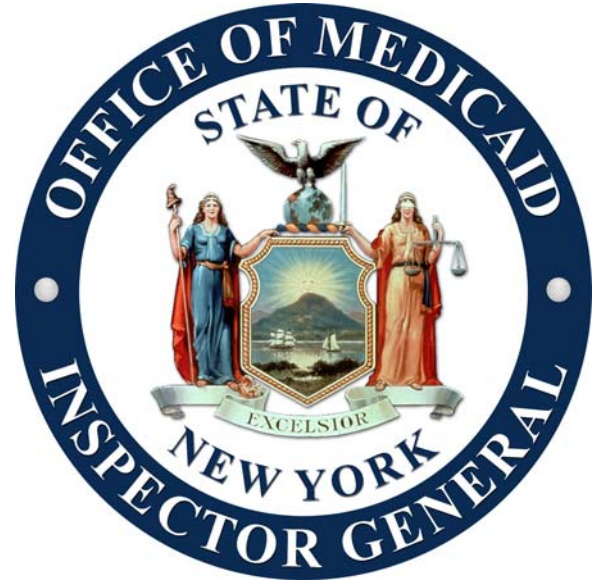
Pharmacies across New York are welcoming the transition of the pharmacy benefit for Medicaid beneficiaries from CVS Caremark to NYRx for countless reasons, not the least of which are significantly increased dispensing fees and reimbursement. When it comes to audit and enforcement risks, however, the transition is more of a mixed bag, and pharmacies may face increased scrutiny by New York’s Office of the Medicaid Inspector General (OMIG) and the Department of Health and Human Services (HHS-OIG).
Effective April 1, 2023, the pharmacy benefit for nearly 8 million Medicaid beneficiaries was transitioned to NYRx, the State’s new pharmacy benefit program. Under the NYRx model, New York’s Medicaid program will pay pharmacy costs directly, eliminating the need for managed care organizations (MCOs) to administer this benefit through Pharmacy Benefit Managers (PBMs) like CVS Caremark. That said, the Health Law Alliance has received numerous questions regarding how this transition will impact PBM audits and enforcement. While those trends have yet to bear out, we are issuing this bulletin to highlight that audit and enforcement risk remains very much alive under NYRx and, in fact, may have increased.
Specifically, while OMIG is the State regulator, clients should be mindful that Medicaid is a shared federal-state program, with approximately a 58/42 percent funding split between New York and and the Department of Health and Human Services. In addition, daily pharmacy claims data will now be shared with MCOs, who already have established investigative units, sophisticated data mining capabilities, and obligations to refer certain cases to federal and state regulators. Accordingly, the potential exists that MCOs and OMIG will be able to more effectively triangulate and investigate medical and pharmacy claims. That said, enforcement is likely to lag while the transition shakes out, which may give some the impression that risks have subsided; as discussed further below, that would be a costly mistake.
I. Medicaid Requirements for Fraud, Waste & Abuse (FWA) Prevention
Under New York and federal law, MCOs are required to establish fraud and abuse prevention plans that include procedures for the detection, investigation and prevention of fraudulent activities. Among other requirements, the MCO’s plan must include the establishment of a full-time Special Investigations Unit (SIU) appropriately staffed by qualified personnel responsible for the investigation of cases of suspected fraudulent and abusive activity. MCOs are also required to refer “potential” and “confirmed” cases of fraud to OMIG, in addition to reporting “reasonably suspected criminal activity.” Finally, MCOs are required to provide any and all assistance requested by the Department of Health in the investigation and prosecution of fraud and abuse.
In addition, under the managed-care model, MCOs and their vendors are self-motivated to maintain robust FWA activities: New York pays the MCOs a per member per month premium to arrange for the provision of health care services, including pharmacy benefits, and the MCOs are entitled to retain much of the delta between that premium and actual costs of care.
II. New York’s Transition of the Pharmacy Benefit from Managed Care to NYRx
New York decided to transition the pharmacy benefit from managed care to the Medicaid NYRx pharmacy program for several reasons. According to Governor Hochul, the new process creates transparency in reimbursements to pharmacies, leverages the state’s purchasing power to negotiate with drug manufacturers, and streamlines administration for practitioners. Patients and pharmacies alike are expected to benefit, with expanded access to more than 5,000 network pharmacies and increased dispensing fees.
Although MCOs (through PBMs like CVS Caremark) will no longer be responsible for managed Medicaid pharmacy benefits, the MCOs remain obligated for FWA activities. Specifically, New York has reiterated that MCOs must continue to comply with federal and State requirements to monitor and report all potential FWA cases. To further this effort, beginning April 1, 2023, MCOs will be provided the pharmacy daily claims file to incorporate into their monitoring efforts. Although MCOs are responsible for the medical benefit, their data-mining algorithms likely also will reveal potential FWA concerns applicable to pharmacies. By way of example, MCOs will have increased visibility into the locations where a particular provider’s prescriptions are being filled, leading to more focused investigations.
III. Federal-State Oversight of the Medicaid Program
In its 2024 budget request to Congress, HHS-OIG requested a 15% budget increase to support Medicare and Medicaid oversight and enforcement, including funding for more than 100 full-time employees to conduct data analytics and investigative, auditing, and evaluative techniques to prevent and detect FWA. HHS-OIG further claimed that such a budget increase was necessary to provide CMS and State Medicaid agencies, as well as the Medicaid Fraud Control Units (MFCUs) and other law enforcement partners, with tips, trends and fast analytics to detect and thwart fraud. Hence, federal support for New York Medicaid FWA cases likely will increase.
In addition, OMIG is responsible for conducting Medicaid program audits, and is authorized to contract with Recovery Audit Contractors (RACs) for Medicaid program integrity purposes. For example, with respect to providers, OMIG has used Gainwell Technologies for years to detect overpayments and the reporting of suspected fraudulent activities. Much like PBM audits, Gainwell send a preliminary findings letter to the provider detailing each claim line and discrepancy. The provider is then given the opportunity to submit additional documentation. Final letters are then sent to providers informing them of the results, and reimbursements may be offset. In other words, Medicaid medical claims are already subject to robust oversight by OMIG and its RAC, and there is no reason to suspect pharmacy claims will be any less scrutinized.
IV. Practical Observations & Take-Aways
New York pharmacies need to fight the urge to exhale deeply now that they will no longer be subject to CVS Caremark’s relentless audits. It is true that, for the time being, audit and FWA enforcement activities likely will lag as the transition and technical difficulties around Client Identification Numbers (CIN) and other nuisances are resolved. That said, once past the summer months, if not before, regulators likely will turn their focus back to the FWA efforts outlined above. For the reasons discussed below, however, compared to when CVS Caremark was performing the function, the potential consequences under NYRx may be more significant in several respects.
First, pharmacies no longer will be able to resolve audit discrepancies to avoid referral to OMIG. Under CVS Caremark, certain inventory discrepancies, for example, were not referred to OMIG as “potential” fraud absent other indicia. In addition, even if matters were referred by CVS Caremark, the process involved a fair amount of manual effort to select cases for further action by OMIG or anther regulator, such as New York’s MFCU. In other words, many referred cases never made it any further than that first step. Now, however, because OMIG will be responsible for audits in the first instance, one can expect that there will be more effective management and follow-through investigation of cases.
Second, although it is a regulatory body that acts through different individuals, there are no circumstances under which OMIG will want to be perceived by its licensees as less capable than CVS Caremark, despite that company’s vast experience with pharmacy audits. This phenomenon likely means that the pendulum will swing far off its arc, with particularly frequent and intense FWA activities in 2024 setting the tone. To this end, it is likely that OMIG will expand Gainwell’s scope or contract with another vendor to further assist this effort. Further, to enhance deterrence, penalties for noncompliance likely will be severe and well-publicized.
Third, OMIG’s increased involvement has the potential to trigger additional obligations owed by network pharmacies to private plans and PBMs. Specifically, many PBMs require pharmacies to disclose the existence of any government inquiry or investigation. Compliance to these PBM notification requirements risks an expanded review, whereas noncompliance risks network termination in the event the PBM learns of the nondisclosure. These grave consequences and Hobson choices will need to be navigated with the utmost care and caution.
Fourth, now that New York will be directly overseeing FWA monitoring for both the medical and pharmacy benefit, those efforts will be all the more effective, particularly with respect to data-mining and investigative analytics. The recent Department of Justice crackdowns in Queens and Brooklyn on over-the-counter (OTC) card exchanges, as we wrote about here, provide an example of how such investigative analytics may be used. OTC issues are commonplace, but federal prosecutors are targeting the owners, pharmacists, and physicians at issue in those cases because investigative analytics revealed that a disproportionate percentage of the pharmacies’ claims came from a particular provider, and that a disproportionate number of the prescriptions dispensed were for high-reimbursing drugs, such as diclofenac.
Finally, the potential exists for the federal government, through HHS-OIG, to backfill any temporary void. As discussed, although the federal government is best known for its Medicare focus, the Medicaid program is a shared federal-state program, and HHS-OIG routinely conducts targeted audit and enforcement activities, which may result in hefty monetary penalties and even exclusion.
In sum, NYRx is a welcome development for the greater pharmacy community, but greater rewards often are a harbinger of greater risks. That trend will not reveal itself for some time, but this guidance should provide a framework for tracking developments. As always, implementation of rigorous protocols, self-critical assessments, and routine practice audits are recommended for confirming performance to pharmacy standards and policies as written. At the Health Law Alliance, our experienced healthcare defense attorneys are helping clients to better prepare for the changes and challenges discussed here. Our firm’s mission is simple: use unmatched experience and insight to defend our clients against insurance conglomerates, the federal government, and state agencies. We used to work for them. Now let us fight for you. Contact us today for a consultation. We can help.
MORE ARTICLES BY CATEGORY
What Wells Pharma v. Zyla Life Sciences Means for Compounding Pharmacies and Outsourcing Facilities
A pending Supreme Court case could reshape how compounding pharmacies face litigation under state unfair competition laws tied to FDA approval standards.
Read More >>Health Law Alliance Welcomes Compounding Expert Pharmacist-Attorney Dr. Martha Rumore as Of Counsel
Health Law Alliance adds powerhouse Pharmacist/Attorney Dr. Martha Rumore to their team of boutique healthcare attorneys.
Read More >>Why Even Minor Documentation Errors Can Be Costly for Pharmacies Facing a PBM Audit
PBMs are using rigid documentation standards to recoup payments and pressure pharmacies. Minor clerical errors can now threaten reimbursement and network participation.
Read More >>The Hidden PBM Threat Putting Pharmacies at Risk: Affiliation-Based Network Terminations
PBMs are quietly expanding their power, terminating pharmacies based on affiliation rather than wrongdoing and putting entire businesses at risk overnight.
Read More >>







